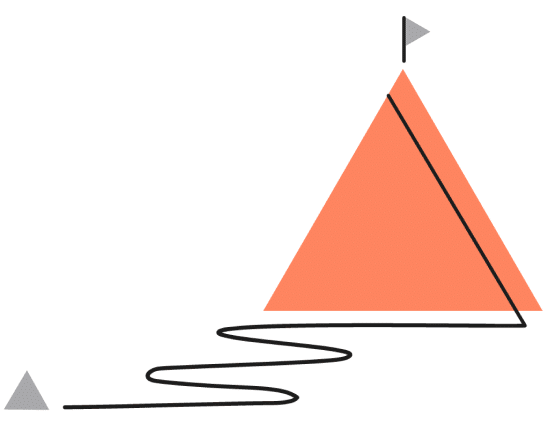What is SMS Marketing?
“Short message service”, or SMS Marketing, is a form of mobile marketing that many businesses use to send promotions and offers to customers through text messages. While mobile marketing includes any marketing campaign that promotes products or services through mobile devices, SMS Marketing specifically focusses on marketing through text messages. Moreover, SMS Marketing is a general term that encompasses various SMS Marketing strategies: Promotional SMS Marketing (one-way), Transactional SMS Marketing (two-way), and Conversational SMS Marketing.
SMS Marketing Strategies
There are 3 SMS marketing strategies:
- Promotional SMS Marketing, or one-way SMS Marketing, refers to messages that are sent from a business to a client. Here, the client cannot respond to the sender. One-way SMS Marketing is typically used to deliver information such as purchase receipts, company announcements, and discount offers; transactions that do not require a response from the client.
- Transactional, or two-way SMS Marketing, allows recipients to respond to automated SMS messages; for example, confirming an appointment or asking for a shipping update. Unlike promotional SMS marketing, which is typically focused on completing a sale, transactional SMS Marketing is seen as a form of customer service, and it aims to keep customers updated about their purchase.
- Conversational SMS Marketing goes beyond simple pre-set responses and allows customers to respond to messages using their natural language for an end-to-end conversation between the client and the business. This type of SMS marketing focusses on creating a personalized, interactive experience for the customer, and ultimately increasing customer engagement.
Download Now: All you need to know about mobile marketing
Types of SMS Marketing
There are several types of SMS marketing campaigns that businesses can implement to engage with their customers. Here are some types of SMS marketing and how to implement them:
- Welcome offers: Businesses can offer discount codes as an incentive for signing up for SMS messaging and send a welcome message with a personalized link.
- Time-sensitive offers: A short and informative SMS message is a great way to inform customers about a flash sale and encourage them to purchase with urgency in mind.
- Order confirmations and shipping updates: Instead of customers checking their email to ensure that their order was confirmed, they will be confident that their order was placed when they receive these messages. This also adds a layer of transparency and credibility to the brand.
- Surveys and feedback: Businesses can send survey questions and collect responses via SMS. For example, a hotel could send a text message to guests after their stay, asking them to rate their experience on a scale of 1 to 10.
- Event invitations: Clients can sign up to receive text messages with event details, RSVP options, and reminders. For example, a music venue or artist can send a text message to their subscribers, inviting them to a concert and providing a link to purchase tickets.
- Customer support: Businesses can designate a specific SMS number for customers to send questions or concerns.
- Thank you offers: By thanking customers via text message, businesses can increase their customer engagement and retention.
How to get started with SMS Marketing
SMS messaging would not reach its full potential for effectiveness if businesses do not keep these 5 things in mind:
- Get permission: First and foremost, get permission. By law, marketers must gain explicit consent from customers or subscribers before sending marketing communications. The easiest way to do this is through pop-up screens or asking customers to input their phone number in the newsletter subscription signup.
- Mention your company: The recipient should know who you are from their first glance at the SMS message. Otherwise, they will not understand the context of your message, and may unsubscribe as a result.
- Encourage next steps: Businesses can encourage their customers to subscribe using a link, use a particular discount code, or visit a specific part of their website based on their preferences.
- Send at the right time: Messages should be personalized to each customer, meaning SMS messages should be sent when customers are awake and active on their phones.
- Implement customer segmentation: Messages should cater to each individual customer and use specific characteristics like the customer’s name, or the previous product they purchased.

Does SMS marketing really work?
In general, SMS marketing is effective. The goal of this tactic is to engage with customers directly, on a personal level. SMS messages are meant to deliver relevant information, promotions, or transactional updates to increase customer engagement.
The reason behind the effectiveness of SMS Marketing is the open rates: everyone is always checking their phone. Other communication channels are barely checked compared to text messages. Moreover, research has shown that SMS messages are usually opened within a couple minutes of sending; companies can rely on this to reach their desired audience.
What are Short Links in SMS?
Short links for SMS are URLs that have been shortened using a link shortening service to be used in SMS communications, in order to reduce the link’s character count. For example, instead of a link such as www.lovelyfashion.com/mens-shoes/winter?type=832, the link shortener will generate opti.net/k7Hjd.
Short links are also used when you have a high volume of unique links in order to track user engagement metrics, like who has clicked on your message and which campaign or initiative is the source of your conversions.
Short links don’t only save costly message characters, look better, and are more enticing to click on, they also allow for deeper analytics to be extracted from the SMS message.
In order to know whether customers click on links in your messages, and track which customer clicked which link, each link has to be appended with a unique tracking ID per customer. After the customer clicks the link in your message, they are first redirected to a page that captures that ID, and then immediately redirected again to the original link’s destination.
This is exactly how click tracking in email works as well. But unlike email, there is no way of tracking SMS message opens. That is why click tracking helps you analyze your customer engagement with SMS campaigns.
The Guide to Mobile Marketing
Perfect your retention-focused mobile marketing with this 101 guide.
Pros/Cons of SMS Marketing
The benefits of SMS marketing for businesses are plentiful and outweigh the downfalls. SMS Marketing has been proven to have high open rates, simplify personalized messaging, decrease marketing costs, and target specific audiences.
Simply put, SMS messages reach customers’ phone skipping the need for them to open an application such as their email operator to view your message. In fact, nearly 90% of SMS messages are read within three minutes of being received.
However, like with any marketing technique, there are reasons why businesses should be careful. Some of the downfalls of SMS Marketing include privacy concerns and channel saturation. If used incorrectly, SMS marketing can raise privacy concerns. This is why it is essential to obtain explicit consent from customers and follow all relevant privacy regulations. Another concern is that SMS Marketing is becoming more popular. It’s possible that customer’s text messages will become saturated with messages from multiple companies; this makes it difficult for some companies to stand out.
Learn How Optimove’s SMS Marketing platform Can Help You Grow Your Business
Optimove utilizes SMS Marketing to drive revenues and increase customer satisfaction. Since SMS is immediate, Optimove uses OptiText to send both transactional and promotional campaigns.
It all starts with SMS segmentation, which serves as the cornerstone for effective communication in your marketing strategy. Tailoring your messages based on specific criteria ensures relevance and engagement, especially with your highest-value customers.
Regarding transactional campaigns, order status updates are a key use case for retail and eCommerce clients. When OptiText is used as a real-time marketing channel, clients will be able to keep customers in the loop and stay top-of-mind with timely notifications about their order and delivery status. All you will need to do is define events to let Optimove know when customers order’s status has changed, and we can trigger real-time to ensure the customer is notified immediately.
For promotional campaigns, OptiText can help keep customers engaged post-purchase, and it can also encourage them to buy by bringing them straight back into your website or app. As long as the client has created a defined event that can be sent to Optimove when that item comes back in stock, and the customer has the correct attributes, an SMS message can be triggered – using the dynamic link library (DLL), the message can link them straight to the item, encouraging their purchase.
OptiText can also send real-time SMS messages. This allows marketing teams to take action in real-time, reacting to live events. Moreover, Optimove’s predictive models can easily see when a customer or group of customers are at risk of churn. Scheduled, recurring campaigns can be created using Optimove’s Stream Builder to utilize SMS to get customers back on track.

Take Advantage of Optimove’s SMS Marketing Technology
Request a Web demo to learn how you can use Optimove’s SMS Marketing technology, such as our Text Messaging Platform, to easily optimize your marketing actions in order to personalize your marketing, decrease marketing costs, and reach your target audience.
Frequently Asked Questions
Which top brands are using SMS marketing?
The top brands that are using SMS Marketing today include:
- Starbucks
- Aeropostale
- Indeed
- Yelp
- Jack in the box
Is SMS marketing cost effective?
Yes! SMS Marketing is very cost effective. In fact, it requires significantly lower costs compared to traditional marketing. Here are some reasons why SMS marketing is an efficient and inexpensive tool for marketers.
- Low Production costs – The only costs associated with SMS Marketing are the costs of a text message provider, which a company is most likely to have already.
- High engagement rates – Since SMS Messages have higher open rates compared to email, this can lead to better return on investment (ROI) and cost efficiency.
- Personalized messages – SMS Marketing sends targeted messages that can maximize the impact of marketing to produce better results with low costs.
Get a personalized tour of Optimove
Let us show you how to go from tens to hundreds of segments
